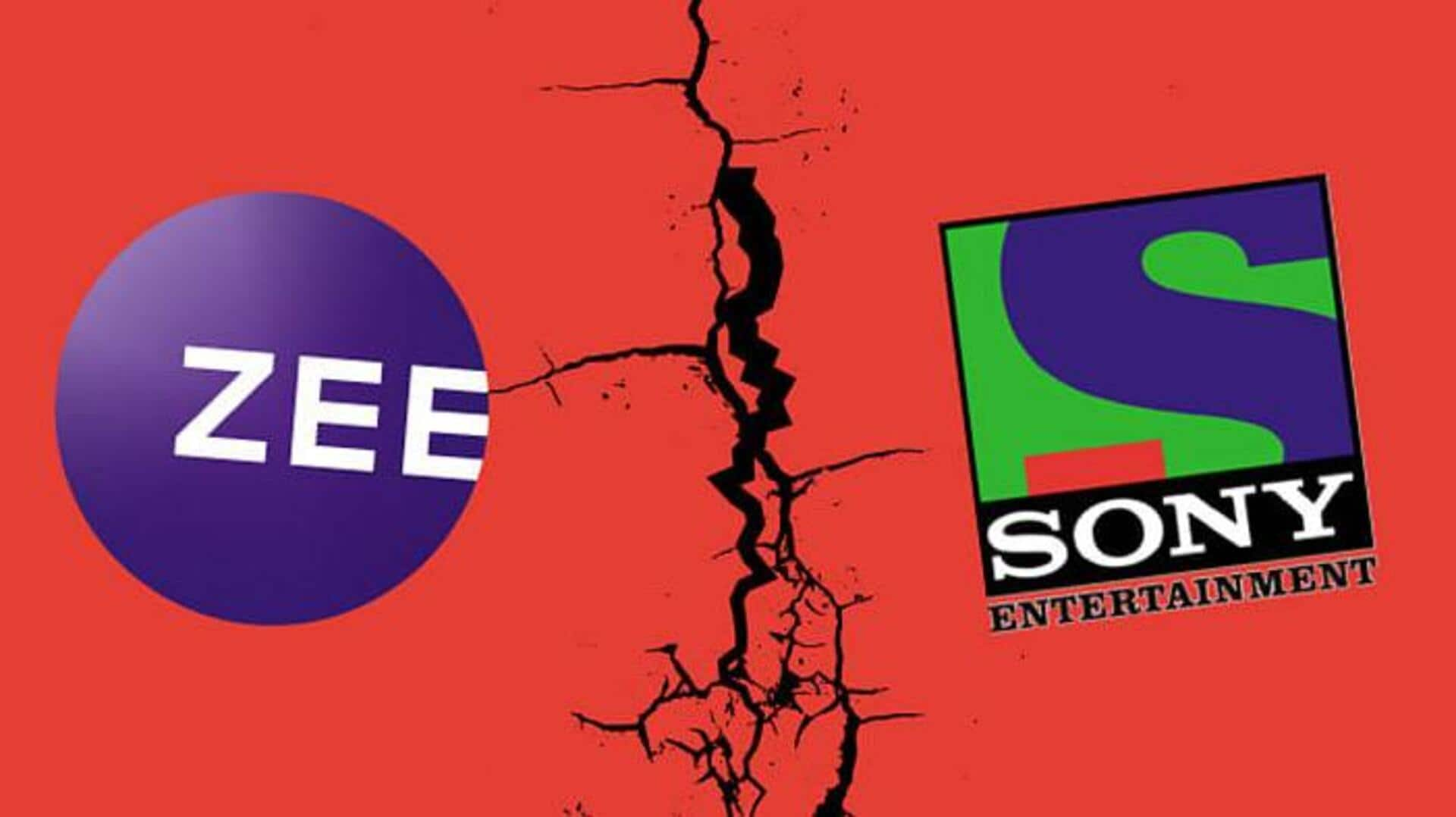
What went wrong with Zee-Sony merger
What's the story
After three years and four months since the announcement of a merger between India's oldest media company Zee and Japan's media giant Sony, the deal has now been officially terminated. If the deal had finalized, Sony would have secured a market share of 37%, surpassing Disney-owned Star's 24%. Unfortunately, despite months of careful negotiations, this promising $10bn merger failed to materialize. Now, the lingering question is: What exactly caused the downfall of this mega-merger?
Details
Sony backed out of the deal over leadership selection
A major reason for the merger falling apart was a disagreement over the leadership of the combined entity involving Zee's MD & CEO, Punit Goenka. Sony was uncomfortable with an ongoing probe into allegations of fund diversion by Goenka. Zee then proposed that Goenka will step down from his position as CEO but on the condition that he retains a seat on the board. Sony was again not comfortable with this proposal and rejected Zee's offer.
Insights
What's the case against Goenka?
In June 2023, the Securities and Exchange Board of India (SEBI) had barred Goenka and Zee Group's patriarch Subhash Chandra from holding directorial or key management personnel positions in Zee and its group companies. SEBI found that both had allegedly diverted funds from Essel Group companies for their own benefit. However, the Securities Appellate Tribunal (SAT) set aside SEBI's order against Goenka in October last year, paving the way for him to lead the potential merged company.
Insights
Sony wanted NP Singh to lead the merged entity
Sony has been uncomfortable with this regulatory overhang in view of its corporate governance policies. For Sony, the only acceptable situation was for Goenka to step down, give up a board seat, and have NP Singh, Sony's current CEO for India, take charge. This was not acceptable to Zee and in the end, no agreement was reached. Zee's request to extend the deadline further was also turned down by Sony.
What Next?
What was the original merger plan?
The merger plan of Zee into Sony was finalized on December 22, 2021. Under the agreement, Sony would have a cash balance of $1.5 billion at closing, including through infusion by current shareholders of Sony and promoters of Zee. After the deal's closing, Sony would have indirectly held a majority 50.86% stake in the combined company, while Zee's promoters would have owned 3.99%, and other Zee shareholders would have held a 45.15% stake.
Facts
What lies ahead for Zee?
Zee has denied all claims made by Sony regarding alleged breaches of the merger co-operation agreement (MCA) and is evaluating all available options to protect the long-term interests of its stakeholders. The company received communications from Sony seeking a termination fee of $90 million and invoking arbitration against Zee. In response, Zee said it reserves all rights in this matter and will take necessary steps, including appropriate legal action and contesting Sony's claims in arbitration proceedings.